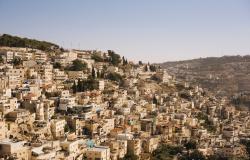An Open Letter Concerning the War in Gaza

These are dark days, with scant light on the horizon. Continuing war in Ukraine, sudden war in the Middle East, both realities with past origins but present horrors. Both come with immediate and global impacts. Both, in more than one sense, are world wars in impact.
My comments below come from a particular vantage point. This includes being a faculty member in the Jackson School of International Studies (University of Washington, Seattle), an author on political/historical subjects, and a cultural (non-practicing) Jew (grandparents who fled the pogroms of the 1880s in the Pale of Settlement, Lithuania). I have the benefit of colleagues with especially deep knowledge of the nations, peoples, and histories involved in these two wars. There are also the tragic facts of a recent PhD student who was murdered in the Hamas attack, and a Palestinian Master’s student whose house was destroyed in an Israeli air attack and whose family, in need of medical aid, had to flee to South Gaza.
What follows are my own views and in no way reflect those of the Jackson School or any of its faculty, staff, or students.
The appalling assault by Hamas on Israelis and others of every age and gender defines the largest terrorist attack since 9/11. It has generated an enraged scale of military response by a far-right, radical government in Tel Aviv, with the result of immense casualties and suffering for Palestinians, and, in a great many eyes, the transformation of Israel from victim into victimizer. Both sides, it would seem, Hamas and the Netanyahu regime, view the Palestinian people as disposable. One side, however, views them as tools in the conflict.
The calamity of the war has been deepened by the overwhelming tendency to blame one side or the other for everything. This seems a response intended to match the shattered, polarized moment of history that now exists. It appears too difficult, or unsatisfying, to admit that terrorism by Palestinians and West Bank occupation by Israeli settlers have fortified one other for decades. Much commentary and protest rhetoric have also ignored the blunt fact that the actual entities prosecuting this war are Hamas and the Netanyahu government, not “the Palestinians” and “the Israelis,” and definitively not “Jews.” Both regimes are extremist, violent, and ideologically rigid. They appear bent not on security or freedom but on the wages of destruction using civilians as currency.
To the degree that Hamas utilize their own people as protection, placing rocket launchers, stored munitions, key tunnels, and more immediately next to or under hospitals, schools and residences, they show little more concern for the Palestinians than for the Israelis they brutally murdered (the recent cease-fire deal to exchange hostages for Palestinian prisoners does nothing to alter this). In effect, they are terrorists to their own people. The suffering that results they consider essential to keeping their “cause” alive and exigent. They have promised to carry out similar attacks in the future, repeatedly. Palestinians should fear this as much as Israelis.
To the degree that the Israeli Defense Forces (IDF) sought to heavily bomb hundreds of identified sites in any case, with massive casualties unavoidable, only makes the point less deniable that the Palestinian people have no one to protect them. The true numbers of dead and injured are most likely unknown (such accuracy being a common casualty of war), but they are surely high and don’t begin to suggest the trauma to many more, especially the young. In the rage of the moment, there is the seeming demand (by the Netanyahu regime) that the IDF do what is necessary to gain back some degree of trust from the Israeli people. The likelihood that this will do more to help breed the next generation of terrorists does not appear to matter. The “cycle of violence” that has ruled in this unending conflict will likely continue.
No less disturbing, however, is that in creating many thousands of civilian casualties, the IDF is doing exactly what Hamas wants. Such has come out in recent interviews with Hamas leaders in Doha, Qatar. Other statements from the leadership confirm that they fully expected a massive air force response, so hid most fighters in the tunnel networks below Gaza, along with enough supplies of food, fuel, medical supplies, and water for several months. The deaths, injuries, and generational trauma of the Palestinians have been the responsibility of both sides.
The Hamas attack had the goal, according to the same leaders, of instigating period of “permanent war.” Such a goal—which, given the attack of October 7, might well be taken at face value—gives even more legitimacy to the effort to destroy the terrorist organization, however long it may take. Meantime, by all accounts, Palestinians living in the West Bank likely feel such a permanent state has existed for years, given Israeli government policies of increased military presence, accelerated demolishing of Palestinian homes and buildings, expansion of Jewish settlements, and refusal to act against attacks and harassment by settlers, all well-documented by Amnesty International.
It is difficult at this stage to think the war will bring a conclusion of some kind. President Biden’s recent op-ed in The Washington Post stated what this writer has long considered to be true: “the Palestinian people deserve a state of their own and a future free from Hamas.” Whether this can be done, with stability and security, will depend greatly on international involvement for a number of years (decades?), something that any far-right government in Israel seems unlikely to welcome. It will obviously not happen without a serious commitment by Palestinians and Israelis—such was the fatal flaw of the Oslo Accords that neither side really wanted them to succeed. Biden seems to understand how difficult it will be this time, too. Though he must speak in terms of light--“two peoples living side-by-side with equal measures of freedom, opportunity, and dignity”—he knows they are bound by a history of blood, loss, and fierce tears, each fighting for the same land that they both consider a destined birthright.
As for the current war, there will be no victors. It is a struggle between ideas as well as people, ideas of faith and destiny. It also calls upon some of the worst catastrophes of the last hundred years: fascism and the Holocaust, failed nation-building, forced mass migration, the rise of terrorism. Its complexity is suggested by the fact that the assassinations of Anwar Sadat, President of Egypt, and Yitzhak Rabin, Prime Minister of Israel, were carried out by extremists from each of their own peoples. There is, too, the problem history of Iran’s involvement, its support of Hamas, anti-Israel proxy groups such as Hezbollah, and the long-term “shadow war” waged with Israel since the early 1980s. Could a two-state solution smooth or calm at least some of this?
Israel can be said to have lost in a key respect: its people’s faith in their government’s ability to protect them, the most basic obligation since the country’s founding. Any belief in the system of deterrence established by Netanyahu was proven naïve. Even the destruction of Hamas, should it prove possible, is unlikely to restore trust to its former level. The most bellicose, hardline regime in Israel’s history proved unable to fulfill its core duty.
Israel also lost control of the narrative beyond its own borders. This seems inevitable, based on a RAND report noting that international outrage followed most earlier bombing campaigns that have responded to Hamas rocket attacks, causing a large number of Palestinian casualties. This time, however, the numbers are exponentially larger, and the narrative was immediately seized by social media that quickly turned against Israel and, revealingly, Jews.
There is no way to absolve the IDF of the deaths, injuries, and devastation unleashed on so many families. Satellite data shows that no less than half of all buildings in northern Gaza have been destroyed or damaged, a figure that does not seem compatible with strictly “targeted” or “precision” bombing. A brutal truth, noted by the RAND authors, is that the IDF has run more limited, targeted operations in Gaza four times since 2008, in response to Hamas rocket attacks, with significantly higher casualty rates for Palestinians each time. A sobering point is that none of these operations was especially successful. This includes the 2014 war, which lasted nearly seven weeks and was supposed to destroy the Hamas’ ability to launch rocket attacks against Israel. Given the many thousands fired at Israeli towns and cities since Oct. 6, that ability has only grown to be more powerful than ever before.
Meantime, Hamas may appear to have succeeded in some of its aims, but it can’t triumph, militarily or ideologically. Its “cause” is impossible—to erase Israel from the map, the country with the most powerful military and advanced economy in the Middle East, not lacking in nuclear weapons. Hamas is not likely to compromise on its central purpose; though it may negotiate on the release of hostages, it remains an extremist, militant, religious organization committed to the destruction of Israel. Its main method toward achieving its aim is murder—exactly what it did on October 7.
It must be said that Hamas has received indirect but nonetheless active support from many of the demonstrations, including those by students and faculty of major universities, especially in the U.S. I won’t add to the growing list of criticisms on this issue (here are a few examples). I do regret that so many in our “cathedrals of learning” have been so quick and categorical to stake a position against “Israel,” while giving a pass to the indiscriminate murders of a terrorist organization.
Public expressions of outrage over the slaughter of Arabs were nowhere to be seen just a few years ago, when Syria’s Bashar al-Assad and his regime murdered more than 200,000 people to crush a rebellion. This included over 34,000 women and children, as well as 15,000 individuals who were tortured to death. Nor were there echoes on campus or in the streets of U.S. Ambassador to the UN Samantha Power’s ferocious condemnation over Russia’s part in this immense slaughter, its bombing of hospitals, schools and humanitarian convoys.
Criticism of Israel or Zionism do not equate to antisemitism. Yet the border has proven to be membranous in many cases, including for a growing number on the left, as authors like David Hirsch and Sina Arnold point out. The claim that Israel was founded on the basis of “settler colonialism,” for example, clashes with the fact that it was established by the UN in accordance with international law. Any “colonialist” brand would belong to these institutions, which have given formal recognition to many countries once under colonial control. It is too simple to conceive Israel as an implanted splinter of the West, still radioactive with imperialist evils.
If scholars and their students have an obligation in this terrible moment, it is more to acknowledge and explain the complex elements at work, the history behind them, and the challenges that lie ahead for any attempted solution. As for those in the U.S. who warn President Biden he is “in trouble” of losing many votes for his public support of Israel, this merely translates as a threat to democracy and peace everywhere. Where would these voters take their ballot, if they vote at all? Anywhere else (or nowhere) will end up by default a vote for Donald Trump. The same Donald Trump who promises if re-elected an expanded ban on Muslim immigration, detention camps and mass deportation, employing the military against civilian demonstrations, using federal resources to take revenge on domestic “vermin,” and, once again, disparaging and breaking international commitments. For people committed to freedom and justice, whether in Palestine or at home, the re-election of Trump would be worse than an unmitigated disaster.
Biden, meantime, was essential to the cease-fire and hostage-exchange agreement. Netanyahu and the far-right were aggressively opposed to the terms until the U.S. president added yet more pressure. Those pleading for a cease-fire should now be Biden-supporters; if not, they delegitimize their position. The situation with aid to the Palestinian people is less clear in terms of how much is actually being delivered (“more” does not necessarily mean “enough”). Food and fuel are critical; people cook and heat with gas. Lack of electricity has left more than 1.5 million in premodern conditions.
Scott L. Montgomery is an author, geoscientist, and affiliate faculty member in the Jackson School of International Studies, University of Washington, Seattle. He has 25 years' experience in the energy industry, where he worked on projects in many parts of the world. His many technical publications include papers, monographs, articles, and textbooks, mainly focused on cutting edge hydrocarbon plays, technologies, related impacts and issues.
Photo by Haley Black


